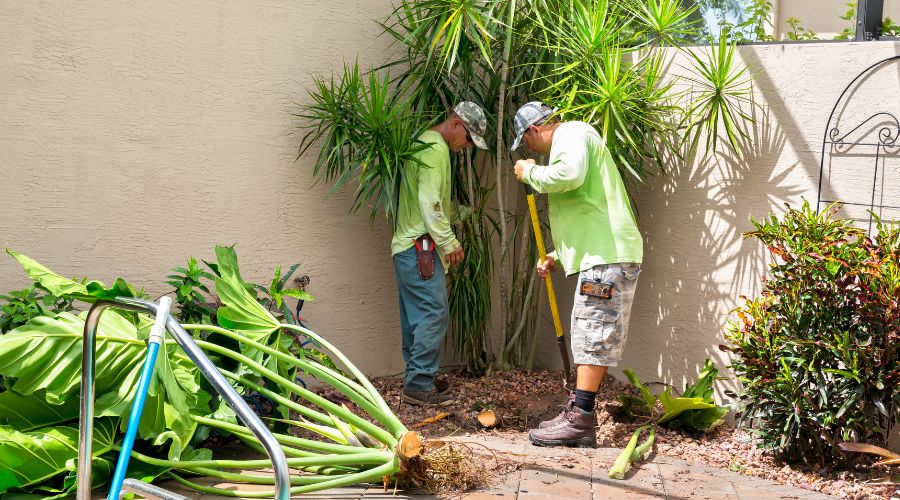Making a change in our living arrangements as we age can be a daunting task. The question of whether to stay in our current homes or seek a more manageable residence lingers in the minds of many. However, it is not merely a matter of where, but when to make this crucial decision.
Dr. Nikki Buckelew, an Oklahoma City based real estate broker and downsizing coach, has observed a recurring sentiment among attendees of her seminars and workshops on downsizing.
“‘I want to stay in my home as long as I can,’ is the most frequent comment I hear,” she reveals, expressing her concern about the timing of such a choice. Moving when the need is urgent poses the greatest challenge.
This article will delve into three significant factors that influence this decision.
1. Health and Wellness

With longer lifespans, individuals experience periods of good health, leisure, and the ability to maintain their homes effortlessly. However, they are also likely to face sickness, recovery from surgeries or accidents, and diminishing physical abilities.
Startlingly, it is estimated by experts that seventy percent of individuals above a certain age will require some form of long-term care in their lifetimes. However, envisioning this reality can be difficult when we have not witnessed family members reaching such advanced ages.
2. Support Systems

Having a robust support system nearby can alleviate the burdens associated with homeownership, including home maintenance and yard work. Family members, grandchildren, or helpful neighbors often step in to lend a hand with repairs and gardening.
Buckelew notes an intriguing tipping point: there comes a time when senior homeowners prefer not to rely on their support system and instead opt for a location where assistance is unnecessary. It becomes a matter of seeking independence rather than dependence.
3. Finances: Balancing the Cost of Change

For those who have invested a substantial amount of their savings into their homes, the thought of spending that equity on monthly fees for leasing or retirement communities requires a profound shift in thinking.
Buckelew explains, “When people have lived on a fixed income for several years, lease amounts can seem exorbitant and maybe even unaffordable.” This financial dilemma is not exclusive to retirees.
Even those who have diligently saved throughout their lives often struggle with transitioning from a mindset of saving to one of spending.
“Retirees frequently perceive living in a mortgage-free home as a more cost-effective option compared to moving to a retirement community or purchasing a new residence. However, as time goes on and major repairs become necessary or the home fails to support their evolving healthcare needs, the inclination to relocate intensifies,” said Shannon Stiger, Certified Senior Housing Professional at Buckelew Realty Group.
Finding the right balance between the financial implications of moving and the long-term benefits requires careful consideration.
While some may find it challenging to justify the costs associated with relocation, others recognize that investing in a new home or retirement community can offer convenience, reduced maintenance, and improved access to healthcare services.
Assessing one’s financial situation, exploring available options, and considering the potential long-term savings can help individuals make a more informed decision.
Planning or Reacting?

When it comes to making residential decisions, individuals typically fall into two categories: planners or reactors. Planners aim to anticipate future challenges and proactively make changes to mitigate potential obstacles. Reactors, on the other hand, postpone making changes until they are absolutely necessary.
Buckelew laments the most common phrase she hears from those who choose not to plan: “I’ll cross that bridge when I get to it.”
Unfortunately, by deferring planning for a potential move, individuals risk limiting their options when the time for change arrives. In many cases, decisions are left in the hands of family or friends due to illness, injury, or cognitive decline.
The timing of such a monumental decision is crucial. Careful consideration of health, support systems, finances, and proactive planning can help individuals navigate this complex process with greater ease.
If you or someone you know would like a complimentary downsizing coaching appointment, give us a call at 405.708.7010.
Planning a future move,
but just aren’t quite ready yet?
If you are a seasoned homeowner or someone
who plans to downsize from a larger home to a smaller
space in the next few years, you have come to the right place.
Click on the Button Below
to learn how you can join the Oklahoma Downsizers Club.

